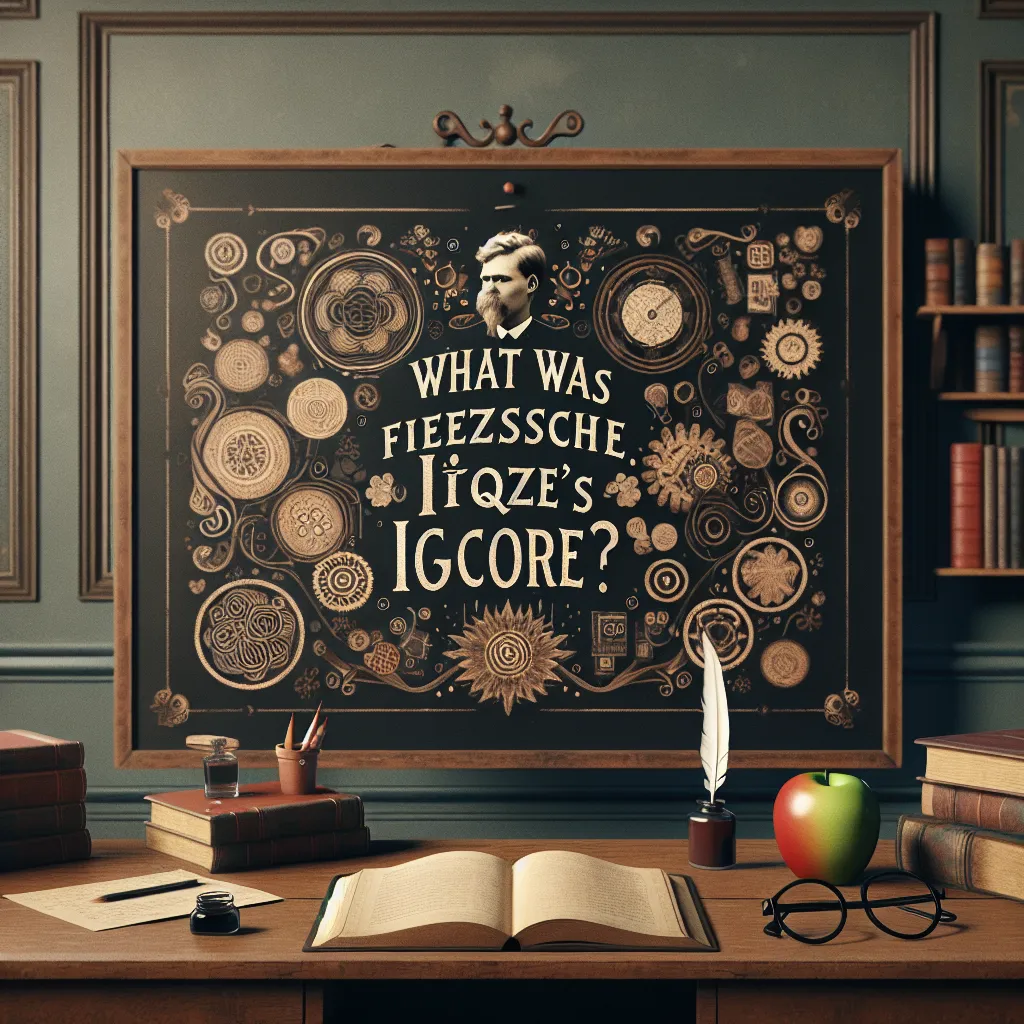Friedrich Nietzsche is one of the most influential philosophers in history, often celebrated for his profound insights into morality, religion, and human existence. His works have left an indelible mark on Western philosophy and have been the subject of countless academic studies and debates. Given his intellectual prowess, many people are curious about Nietzsche’s IQ score. Was there ever a quantitative measure of his intelligence? What can we infer about his cognitive capabilities based on historical accounts and his body of work?
If you are looking for legitimate IQ Tests which pass the entry bar for Mensa, see our IQ Tests.
First, it’s essential to understand that the concept of an IQ score wasn’t formalized until well after Nietzsche’s time. The first modern intelligence test was created in the early 20th century by Alfred Binet and Theodore Simon, and further development of the IQ test was undertaken by Lewis Terman. These tests were not available during Nietzsche’s lifetime (1844-1900). Consequently, any attempt to estimate Nietzsche’s IQ score would be speculative and cannot claim empirical accuracy.
Still, the complexity and depth of Nietzsche’s work suggest that he possessed extraordinary intellectual abilities. Born into a family that valued education, Nietzsche demonstrated academic talent from an early age. He was a prodigious student, and his early schooling was rigorous. His journey through academia continued as he attended Schulpforta, one of the most prestigious boarding schools in Germany, where he studied subjects such as classical languages, theology, and literature.
Nietzsche’s precocious talent led him to the University of Bonn and later to the University of Leipzig. At Leipzig, his philosophical inclinations deepened. He was particularly influenced by Arthur Schopenhauer and the music of Richard Wagner. By the age of 24, Nietzsche had been appointed as a professor of philology at the University of Basel, a remarkable achievement for someone his age.
Nietzsche’s philosophical works, including “Thus Spoke Zarathustra,” “Beyond Good and Evil,” and “The Genealogy of Morals,” are characterized by their complexity and originality. His writing often delves into themes of existentialism, nihilism, and the concept of the Übermensch (Overman or Superman). His critique of traditional moral values and his assertion that “God is dead” have provoked extensive discussion and analysis.
To gauge Nietzsche’s intellectual capability, one might consider the ability to grapple with such intricate philosophical concepts, which requires an exceptional level of cognitive function akin to a modern intellectual elite. However, IQ tests typically measure a range of cognitive abilities such as logical reasoning, problem-solving, and verbal and mathematical skills. They may not necessarily assess a person’s capacity to produce groundbreaking philosophical ideas.
Furthermore, Nietzsche was a polyglot; he was fluent in several languages, including Greek, Latin, and French. Mastery of multiple languages is often associated with higher cognitive abilities, as it demonstrates adaptability and mental flexibility. His extensive written and spoken language abilities enabled him to engage deeply with classical texts and frame his philosophical discourse eloquently.
Nietzsche’s mental agility was also evident in his musical talent. He was a proficient pianist and composer. The association between musical ability and intelligence has been considered in psychological research, which suggests that musical training can enhance cognitive functions such as memory and spatial-temporal skills. This further underscores the breadth of Nietzsche’s intellectual capacity.
It is imperative to recognize, however, that Nietzsche’s life was marked by frequent bouts of illness and mental health struggles. In 1889, he experienced a severe mental breakdown, leading to a state of near incapacitation that persisted until his death in 1900. While some have speculated that his mental health issues might have been a result of syphilis, the exact cause remains uncertain. Despite these challenges, the intellectual output he managed during his healthier years is extraordinary.
While Nietzsche’s precise IQ score is unknown and historically unverifiable, we can safely postulate that his intellectual abilities were exceptional. His pioneering thoughts and critical insights have continued to influence and inspire diverse fields, from philosophy to psychology, literature, and cultural studies. His ability to question and redefine fundamental aspects of human existence is testament to his unique cognitive capabilities.
In modern terms, highly intelligent individuals are often characterized by their ability to innovate, think abstractly, and challenge conventional wisdom. Nietzsche’s life and work embodied these qualities, and he was able to articulate and defend his ideas in persuasive and compelling ways. These attributes align with characteristics found in individuals who score highly on IQ tests, though such tests are limited in assessing the full scope of human intelligence.
Nietzsche’s legacy and enduring influence suggest that intelligence is not merely a number but a confluence of various cognitive and existential faculties. He provided profound critiques and visions that continue to resonate, urging humanity to evolve beyond established norms and mediocrity. This intellectual bravery and creativity are arguably the hallmarks of true genius.
In conclusion, while Friedrich Nietzsche’s exact IQ score is a matter of speculation and anachronistic conjecture, his intellectual achievements provide ample evidence of his extraordinary cognitive faculties. His contributions to philosophy, culture, and human understanding outstrip what a single number could encapsulate. Nietzsche’s genius is best appreciated not through an IQ score but through a deep engagement with his works, which continue to challenge and inspire readers across generations. For those fascinated by the workings of high intelligence and looking to measure their own cognitive abilities, exploring legitimate IQ tests can provide a window into one’s intellectual potential, albeit within the limits of standardized testing methodologies.



Leave a Comment